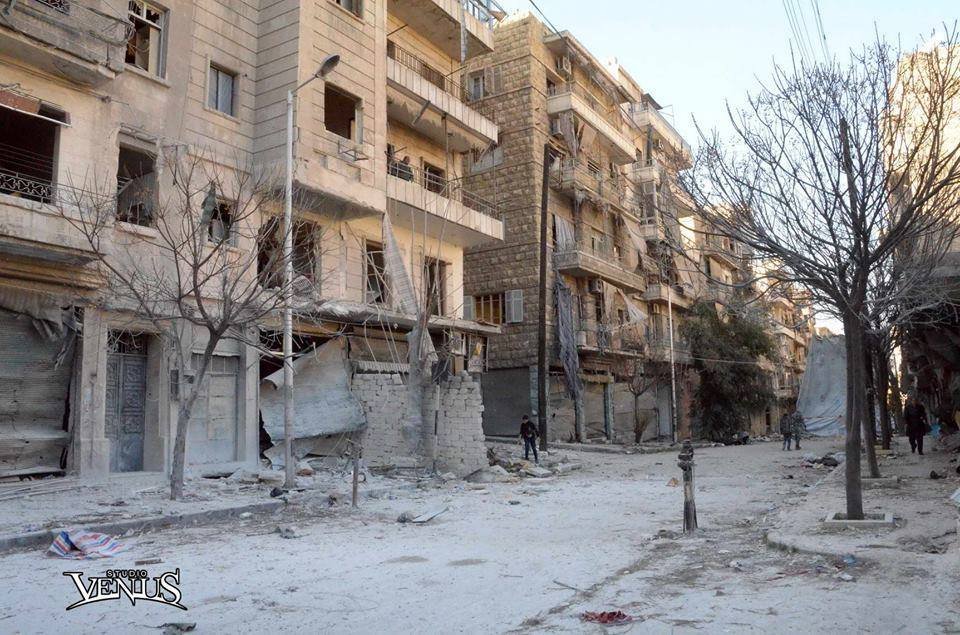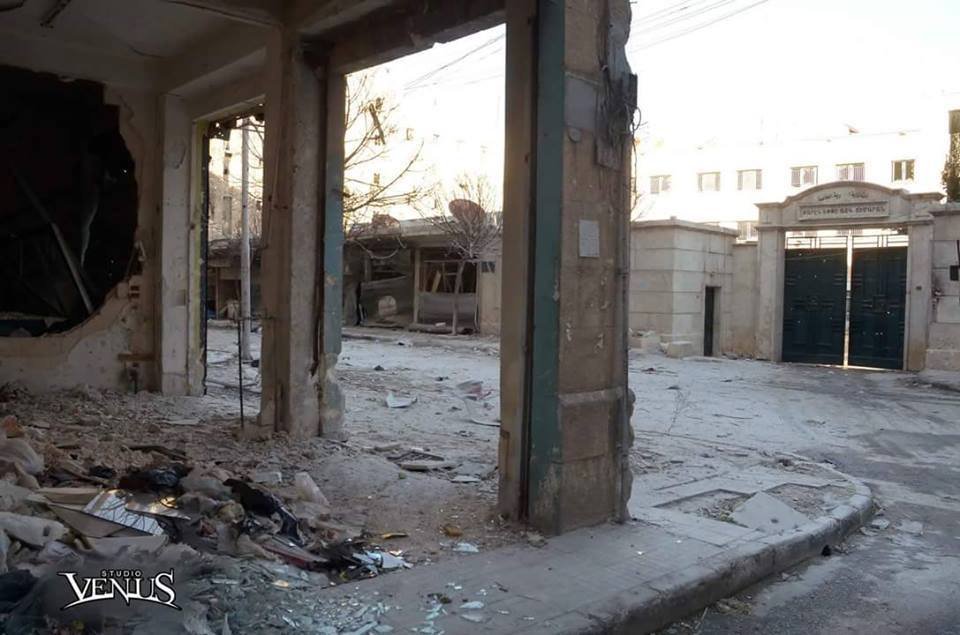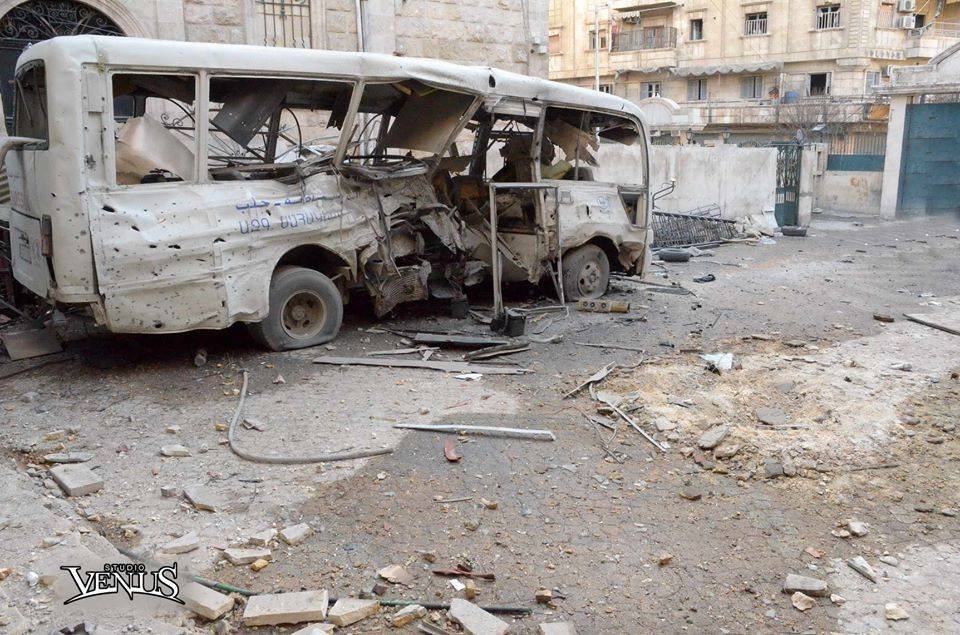They burned our homes, churches, hospitals, and schools…
Words I have heard for most of my life from my grandparents, their friends, the genocide survivors I had interviewed, read about in history books and memoirs, seen in plenty of B&W photographs. I have heard many first-hand accounts about how people were killed and how they were orphaned, my grandparents among them. Stories of starvation, hunger, desperation—and most of all miraculous tales of survival and revival—were the stories in place of our children’s books, which we did not have to start with.

But all that referred to a century ago; it related to my grandmothers and grandfathers who had lost everything—their parents, homes, schools—in historical Armenia and had started a new life in Aleppo out of the Der El-Zor Syrian desert sands.
A century later, a new war in Syria began to unfold hurriedly from small uprisings to a civil war to an international conflict with no end in sight. Five years on and still counting, we’re again witnessing the demolition of our homes, hospitals, schools, and cities—in Syria this time. Our fellow countrymen, who hosted my grandparents a century ago, have themselves now become stateless, orphans, refugees, and flotsam corpses washing up on the beaches stretched between Greece and Turkey on their way to sometimes welcoming and at times hostile countries—lives caught between barbwires and misleading open roads running into swiftly erected borders of a free Europe.
How ironic it was when on a recent trip to Toronto I, a grandson of Armenian refugees who had found shelter and a home in Syria, was humbled by helping a group of 30 Syrians immigrating to Canada after spending 3 years in living hell, in a tent camp in Jordan as refugees. When we finally landed at Toronto’s airport, the most elder among them thanked me countless times and wished to invite me to his home, but regrettably he did not know where his Canadian home would be. We parted after hugging each and every one of them and when shaking hands for the last time with the elder, he said, “You are Armenian, you understand us better than anyone else. We have become the you of our times.” I wanted to say something but could not gather any words in any of the languages I know. My senses were spread on many thoughts: imagining my grandparents left alone as orphaned children in the Syrian wasteland, while being with survivors of the Syrian War in an airport.

The mindless conflict in Syria moved from the rural areas into the cities and eventually Aleppo. I knew this first hand when old classmates called to inform me that my home, my neighborhood, my childhood streets had been bombed and totally destroyed. There was no “home” to go back to, they said, it will from now on exist only in my memory. “You are lucky, you visited just before the sheer human madness,” the voice said over the mobile phone. “We will tell our grandchildren about all that was and all that’s being gone, like our grandparents told us about what they had lost and how they survived and built a new life somewhere on earth, near and far.”
Men with insurmountable egos, megalomaniacs leveling down their appetite to control, dominate, expand, and be the winning gods of wealth negotiate the turfs and come to an agreement causing millions of humans to become homeless refugees, countless of lives to be annihilated, homes, neighborhoods, and cities of hundreds of years to turn into dust and debris. What good serves the pride of sending a fire engine, an ambulance, a police squad, and reporters to rescue one or two from a misfortune as a show of valuing human life, when with a single bomb dumped from a machine worth millions of taxpayer dollars hundreds can be killed in a second, a neighborhood, cities, and schools wiped out? Why do we have schools if we are to learn and behave otherwise?
‘We will tell our grandchildren about all that was and all that’s being gone, like our grandparents told us about what they had lost and how they survived and built a new life somewhere on earth, near and far.’
The school I went to was not the learning institution that I loved, but it was the place where I learned what to like and dislike. There I learned that I was not made to like grammar, or enjoy a lesson in chemistry, physics, math. Logarithms were not my cup of tea, although I enjoyed sipping it. There I learned that what I loved was not found in the curriculum—art, theatre, cinema, and literature were not in our textbooks. Further, I did not like the establishment where patriotism, pride, and elitism were spoon-fed to us as a means of preserving our Armenian heritage in that tiny oasis of ours in mighty Syria, the self-entitled champion of Arabism.
In recent developments of this escalating conflict, Aleppo is now being crushed by the aerial bombs of the world powers that kill people on the ground who seem to be tiny flies from the sky. I remember the tiny fly who had entered my grandmother’s living room and gave her a run when she could not bring herself to kill it; she stayed outside until I arrived home from school—the school she helped me attend with her saved pennies, hoping that one day I would become a learned man.

I had no attachments to the prison that had locked my free spirit and splendid imagination and propelled my mind’s eye beyond the limestone walls, yet the few recent images of my bombed school planted seeds of anger in me, leading me to precipitously discover a deeply set affection for the institute I had run away from as many times as possible.
The road on which we walked to be edified is now desolate and in ruins. The gate through which thousands passed to learn and hundreds to teach over many years now stands as verification of man’s assault upon himself. Schools were meant to teach us and advance our humanity, but evidently learning can soar us to outer space, where we hear the sounds of converging black holes or the sounds of bombs plummeting into our dark inner depths, wiping ourselves out—as manifested clearly in the fully colored photographs that were B&W a century ago.
They have bombed our school…


As bad as things are in Syria, whatever Armenians have not left should pack their bags & whatever wealth they still have and go back to their homeland in Armenia & establish businese to help the economy, otherwise those fanatical Moslems along with the ISIS will wipe out not only our Armenian People but any other Christians remaining. They should have seen this coming a few years back and taken action.